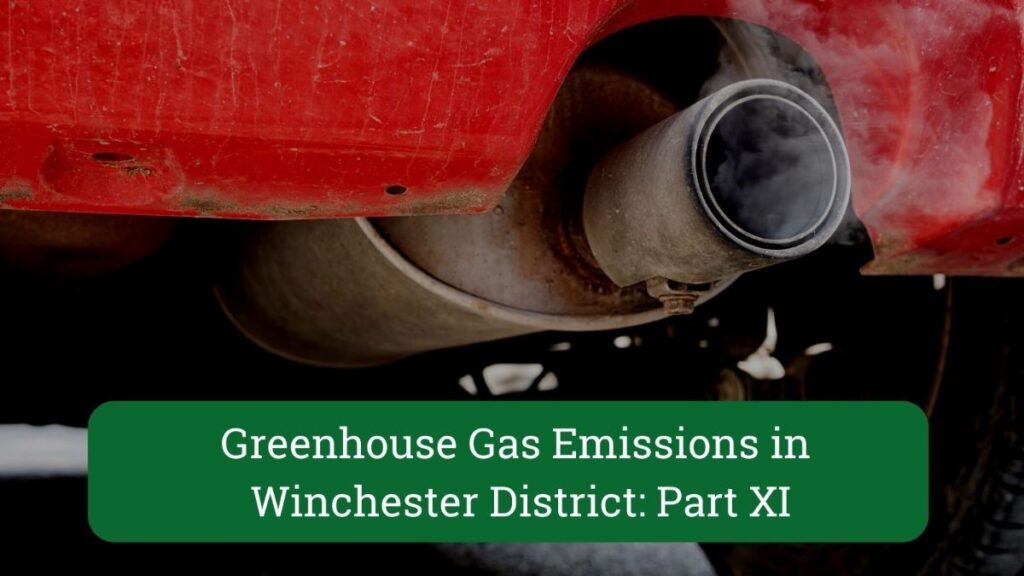WinACC: 11th Annual Greenhouse Gas Emissions Report

As leaders from across the globe come to Glasgow for the COP26 climate conference, WinACC has unveiled the findings of its eleventh annual report on the District’s greenhouse gas emissions.
The report shows the District’s emissions from the use of electricity have declined since 2012. This is because national Government is closing power stations that burn coal and oil. But local emissions from all other sources have barely changed in the last decade.
The challenge is to get to being carbon neutral. This must be done by 2050 to meet UK’s legal obligations; much earlier, according to many climate scientists, and by 2030 to hit the target set by Winchester City Council when it declared a climate emergency in July 2019.
Statistics
According to the Department for Business, Energy and Industrial Strategy (BEIS) the largest source of emissions from the District in 2019 was from road vehicles (451 ktCO2), even when motorway traffic is excluded (272 ktCO2). The next largest source was the domestic use of gas, mainly for central heating boilers and hot water (109 ktCO2). Because carbon is locked up in the District’s trees and soil –a “carbon sink” – this reduces the volume of greenhouse gas by 49 ktCO2, but this is too small to have much effect on the overall emissions.
Using other data from the Centre for Sustainable Energy, the authors found that 71% of the District’s household emissions from energy, food, transport and general consumption arise from the 64% of the District’s population who live outside Winchester city. This is almost certainly because some homes that aren’t on the gas grid are heated by burning oil and LPG which are more polluting than gas, and because many people in rural communities see no alternative to driving.
Reducing emissions
The WinACC report suggests numerous ways to reduce emissions. They include home working to reduce commuting by car, replacing vans by electric vehicles, disincentives for cars – especially those with the biggest carbon footprints such as SUVs – more solar and wind farms, much better insulation of all homes and moving from oil and gas heating to heat pumps.
The report suggests that although individuals, households, businesses and Winchester City and Hampshire County Councils can and must reduce their own emissions, we urgently need national government legislation to tackle the climate crisis. “We need public subsidies on buses so that people aren’t compelled to drive and we need grants to help people pay to insulate their homes and replace their heating with environmentally friendly alternatives to fossil fuels. We also need the speed limit on motorways to be reduced” said Dr Bob Whitmarsh, the main author of WinACC’s report.
Read the report
The report is on WinACC’s website or you can download it below.
Estimates, trends (2005-2019) and future mitigationDownload
Find out more
Anyone who wants to know more is welcome to come to WinACC’s next open meeting at 7.30pm on Wednesday 17 November on Zoom. This will discuss what we need to do in the light of data about Winchester’s emissions and the results of the COP26 conference. email contactus@winacc.org.uk to find out more.

Comments
WinACC: 11th Annual Greenhouse Gas Emissions Report — No Comments
HTML tags allowed in your comment: <a href="" title=""> <abbr title=""> <acronym title=""> <b> <blockquote cite=""> <cite> <code> <del datetime=""> <em> <i> <q cite=""> <s> <strike> <strong>